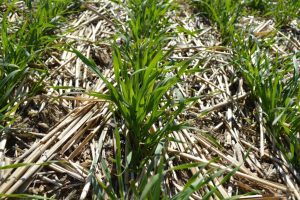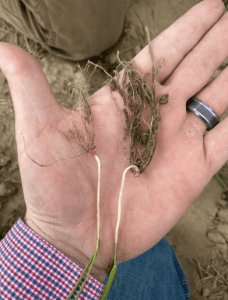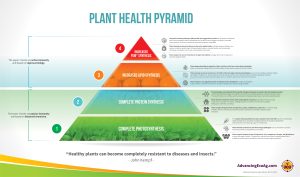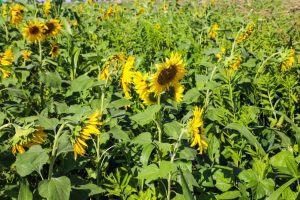Source: This post was originally published on ElevateAg
The Regenfarming.news summary:
- Biostimulants enhance plant health, productivity, and stress resilience, improving crop quality and yield.
- Benefits include increased stress tolerance, better water and nutrient uptake, stronger root growth, and improved disease resistance.
- Biostimulants like chitosan, algae, kelp, and humic acids strengthen plants’ defenses against environmental stressors.
- Studies show biostimulants significantly improve drought resistance in crops, enhancing root growth, water retention, and photosynthesis.
- Biostimulants are promising for pasturelands, boosting plant vigor, nutrient efficiency, and stress management.
- They contribute to sustainable agriculture by supporting high-output, low-input crop production and long-term soil health.

Biostimulants are transforming agriculture by providing sustainable solutions to enhance plant health, productivity, and resilience to stress. Defined as any substance or microorganism applied to plants to boost nutrition efficiency, abiotic stress tolerance, and crop quality traits, biostimulants offer a range of benefits regardless of their nutrient content.
Benefits of Biostimulants
Common effects of biostimulants on plants include:
- Increased stress tolerance and recovery
- Improved water and nutrient uptake, translocation, and use
- More robust root structure and growth
- Better disease tolerance
Enhanced metabolism for higher yields and better crop quality - Improved produce quality, including sugar content, color, and fruit seeding
Biostimulants like chitosan, algae, kelp, and fulvic/humic acids help plants recognize and use natural agents to strengthen their defenses against various environmental stressors.
Drought Tolerance and Stress Resistance
Multiple studies conducted in arid climates have demonstrated that biostimulants significantly improve drought resistance in agricultural crops. By enhancing growth mechanisms, biostimulants enable crops to better manage environmental stressors present during drought conditions, such as lack of rainfall, pests, salt stress, and heat.
A study done in Poland used beneficial bacteria, mycorrhizal fungi, and humic products on cereal crops, including winter wheat and corn, during drought conditions. Each group with applied biostimulants saw benefits such as improved roots, greater water retention, higher photosynthetic levels, and higher yields in comparison to the control group without any biostimulants applied.
Applications in Range and Pastureland
Biostimulants are also promising for range and pasture lands. These products, which include a variety of microbial and non-microbial substances, aim to improve plant growth, nutrient uptake, and resistance to stress without the negative side effects associated with traditional fertilizers and pesticides.
Research indicates that biostimulants can:
- Enhance the vigor of pasture plants
- Increase nutrient use efficiency
- Boost overall yields and quality
- Help plants manage stress, maintaining healthy pastureland under varying environmental conditions
Amino acid-based foliar biostimulants have shown mixed but positive results in various trials, underscoring their potential in sustainable agriculture practices.
Sustainability and Future Prospects
There are significant benefits of introducing biostimulants to your farming practice. Biostimulants can help get plants through many different stresses including lack of rainfall, pest attacks, salt stress, and excessive heat. By using biostimulants, plants recognize the natural agents applied and use them to strengthen their defenses.
Biostimulants contribute to sustainable, high-output, low-input crop production and thriving, nutrient-dense range and pasture lands. By enhancing soil health and promoting natural biological processes, they support the long-term productivity and resilience of agricultural ecosystems. As the agricultural sector evolves, biostimulants are poised to play an increasingly vital role in shaping a more productive and sustainable agricultural landscape.


















